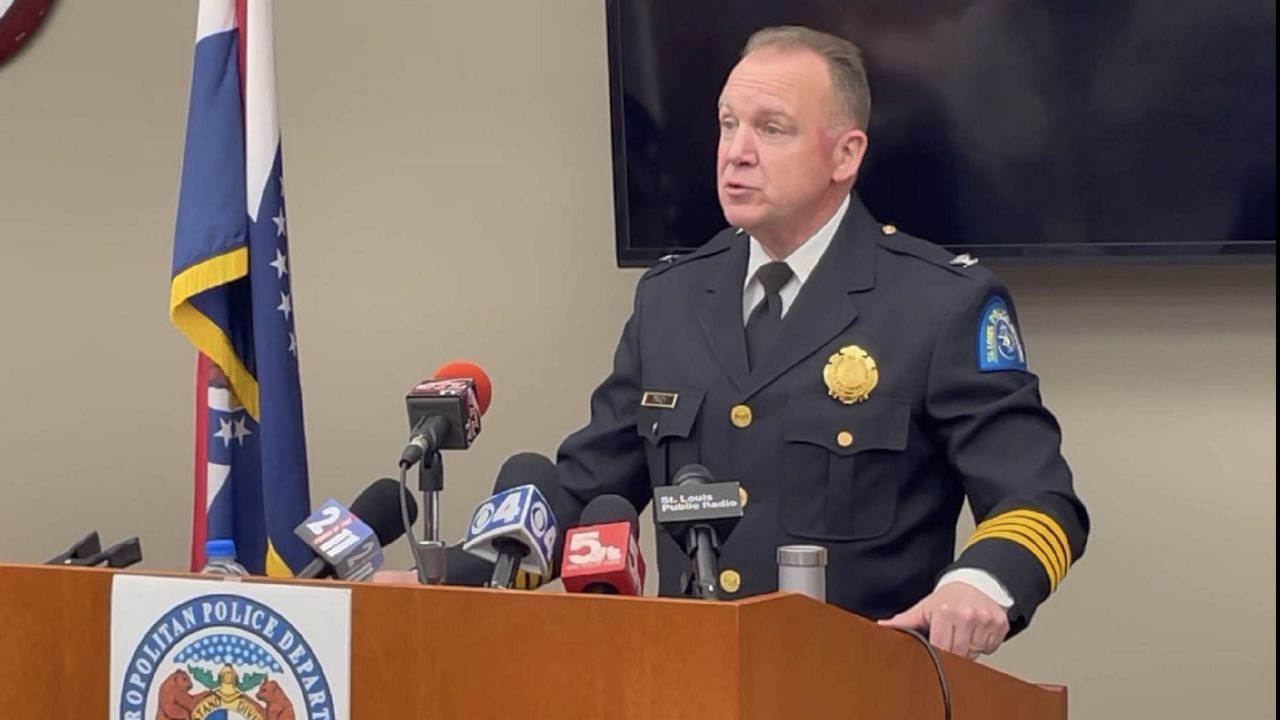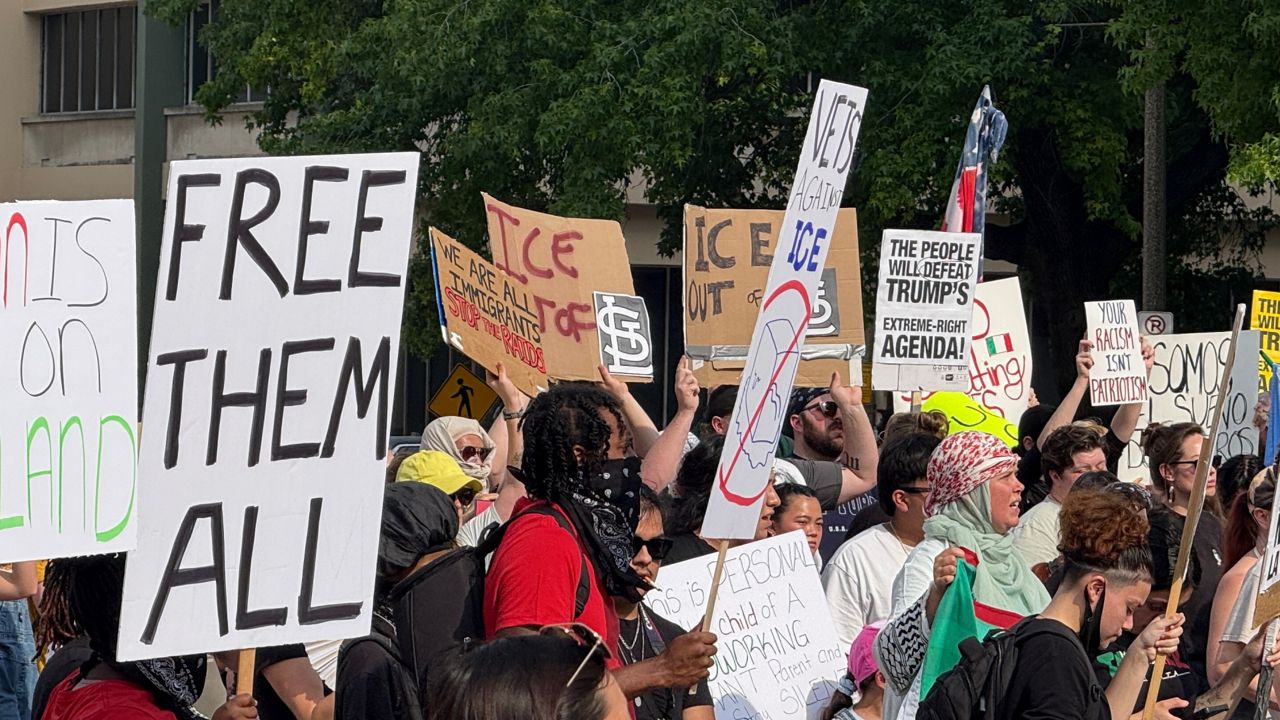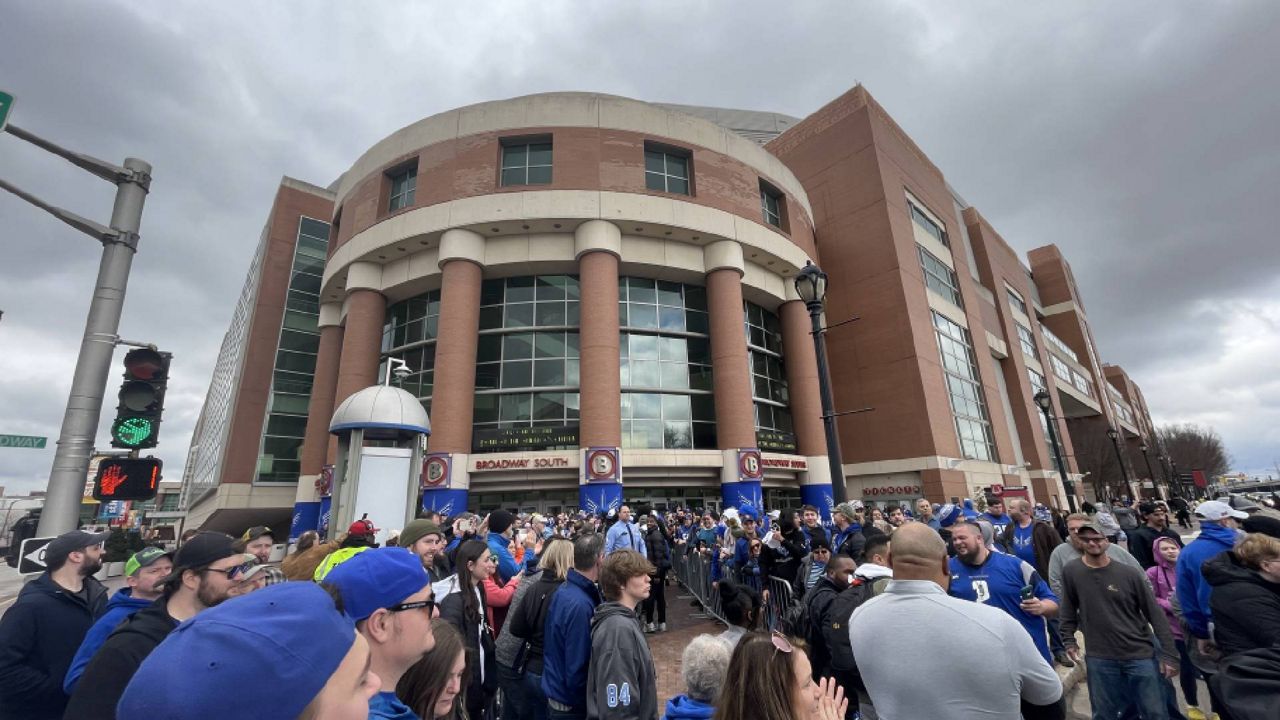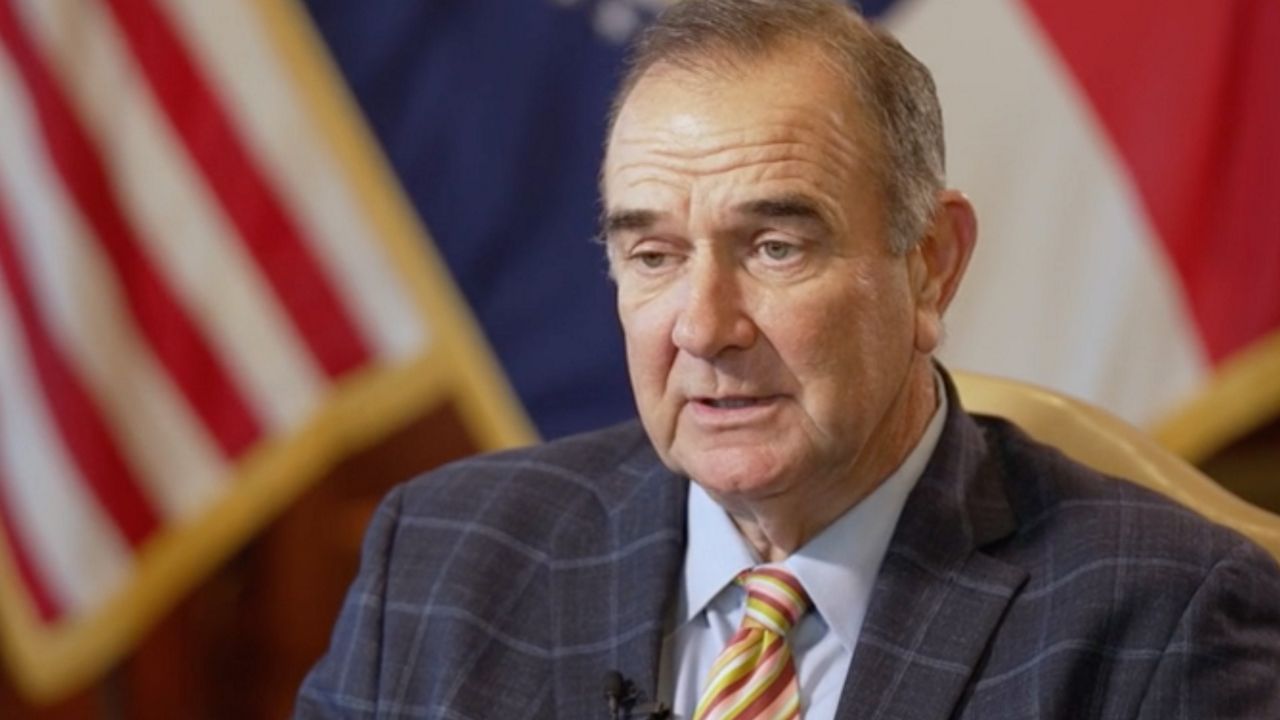ST. LOUIS– In the more than 100 days that have passed since he became the first St. Louis Metropolitan Police Department chief chosen from outside the agency’s ranks, Robert Tracy has spent time working on morale and structural accountability systems inside the department, and building bridges to community groups on the outside.
He’s also spent time testifying in Jefferson City against legislation that would put control of the department back under a state-appointed board. A bill doing that has passed the House and awaits action in the Senate with less than a month left in the current legislative session.
At a Friday news conference to mark the 100-day milestone, Tracy told Spectrum News he’s “in St. Louis for the long run” even if that bill becomes law.
“If asked and have the privilege to be in this uniform and serve this city, even if it’s under state control, if I’m asked, I definitely will stay.”
That’s an assurance Mayor Tishaura Jones had not asked for as recently as two weeks ago, while going on defense against state lawmakers and lobbyists who are pressing for the change, citing what they say is a lack of support from city leaders and poor morale.
Tracy cited concerted efforts to shore up morale, including outside training opportunities and a new contract for officers that he says makes pay competitive in the region.
While Tracy has pleaded with state lawmakers and others for time to make changes over the long haul, he cited short-term statistics that are pointing in the right direction. A 16% drop in homicides year-to-year, a 32% decline over 2021, plus a 9% drop in total crime.
Tracy inherited a department that has been in a fractious relationship with St. Louis Circuit Attorney’s Office in recent years, as prosecutors have refused to file cases brought by some officers and have accused the department of failing to produce evidence needed for cases.
He referenced the move by Attorney General Andrew Bailey to have Circuit Attorney Kim Gardner removed from office, saying his department was responsive to requests to process evidence.
While the immediate numbers on crime are a sign of good news, Tracy was aware that numbers need to keep falling for the public’s perception to catch up.
“We do have our challenges. I’m not here by accident,” he said, acknowledging that his approach took more than a year in Delaware, and two years in Chicago.
“If we execute and make sure we improve on what I walked into, I know we can get this done because I’ve seen it happen in other places,” he said.












